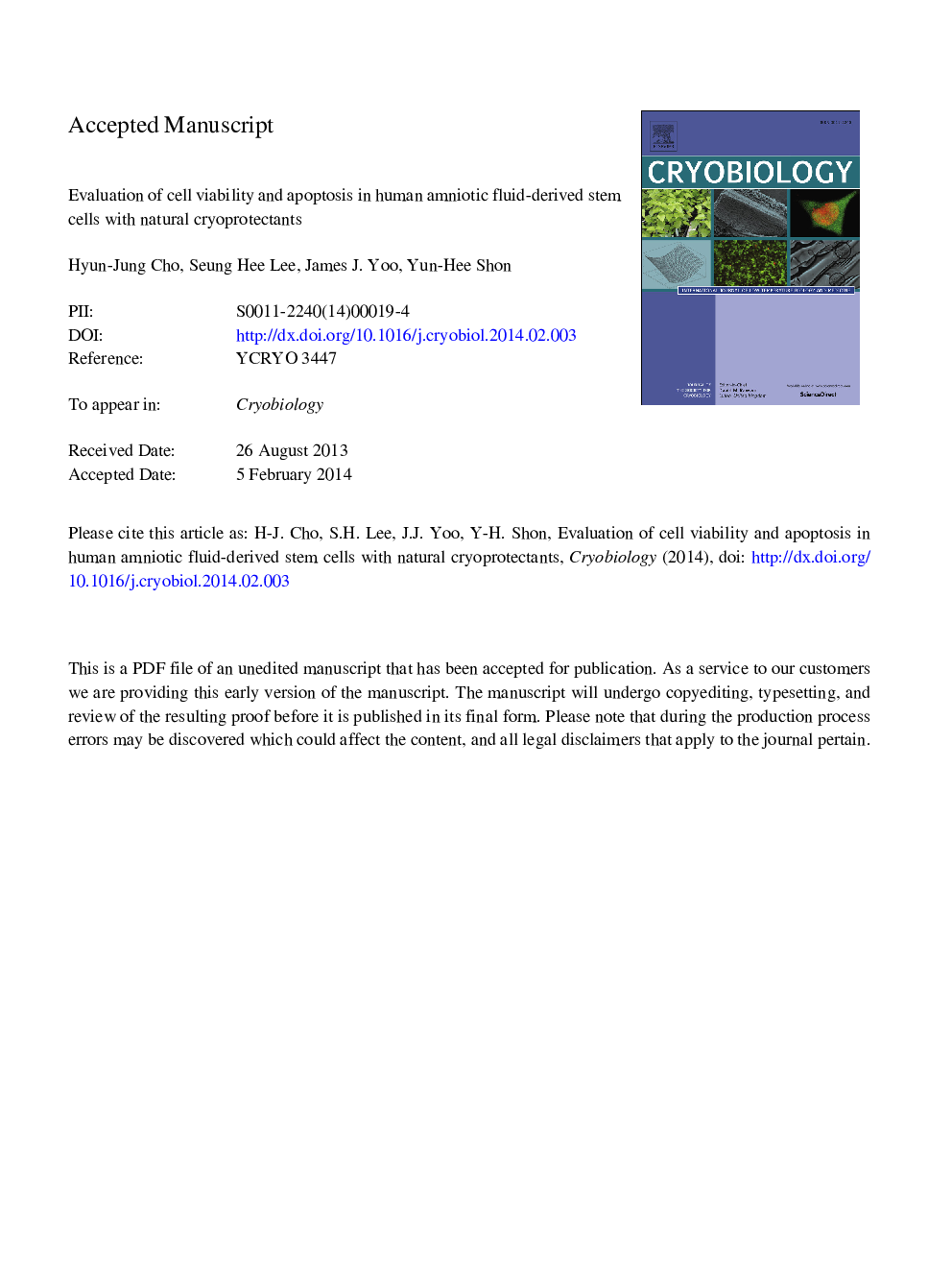| Article ID | Journal | Published Year | Pages | File Type |
|---|---|---|---|---|
| 10927986 | Cryobiology | 2014 | 29 Pages |
Abstract
A previous study demonstrated that disaccharides, antioxidants, and caspase inhibitors can be used in freezing solutions to reduce the concentration of Me2SO from the current standard of 10% (v/v) to 5% (v/v) or 2.5% and to eliminate fetal bovine serum (FBS) for the cryopreservation of human amniotic fluid-derived stem cells (AFSCs). Hence, this study investigated whether an irreversible inhibitor of caspase enzymes, benzyloxycarbonyl-Val-Ala-dl-Asp-fluoromethylketone (zVAD-fmk), could be used in post-thaw culture media to increase the survival rate of AFSCs. Our results showed that AFSCs cryopreserved in freezing solution containing trehalose, catalase, and 5% (v/v) Me2SO and then supplemented with zVAD-fmk in the post-thaw culture media showed similar post-thawing viability, proliferation, and apoptosis than cells cryopreserved in the control solution (10% (v/v) Me2SO and 20% FBS). The caspase-3 activity in all the cryopreservation solutions tested was similar to that of the control. Caspase-3, caspase-8, caspase-9, and PARP expression was not found in the cryopreserved cells. In addition, no difference was found in the survival rate and apoptosis between short-term (3Â weeks) and long-term (1Â year) storage of AFSCs cryopreserved in the solutions used in this study. The results of the present study demonstrate that recovery of cryopreserved cells was enhanced by using a caspase inhibitor in the post-thaw culture media.
Related Topics
Life Sciences
Agricultural and Biological Sciences
Agricultural and Biological Sciences (General)
Authors
Hyun-Jung Cho, Seung Hee Lee, James J. Yoo, Yun-Hee Shon,
